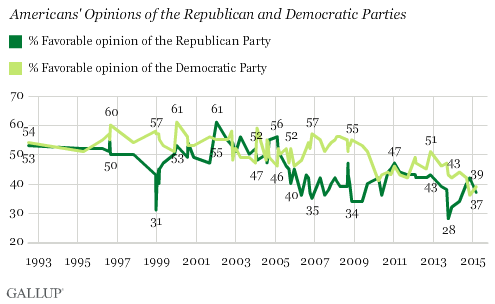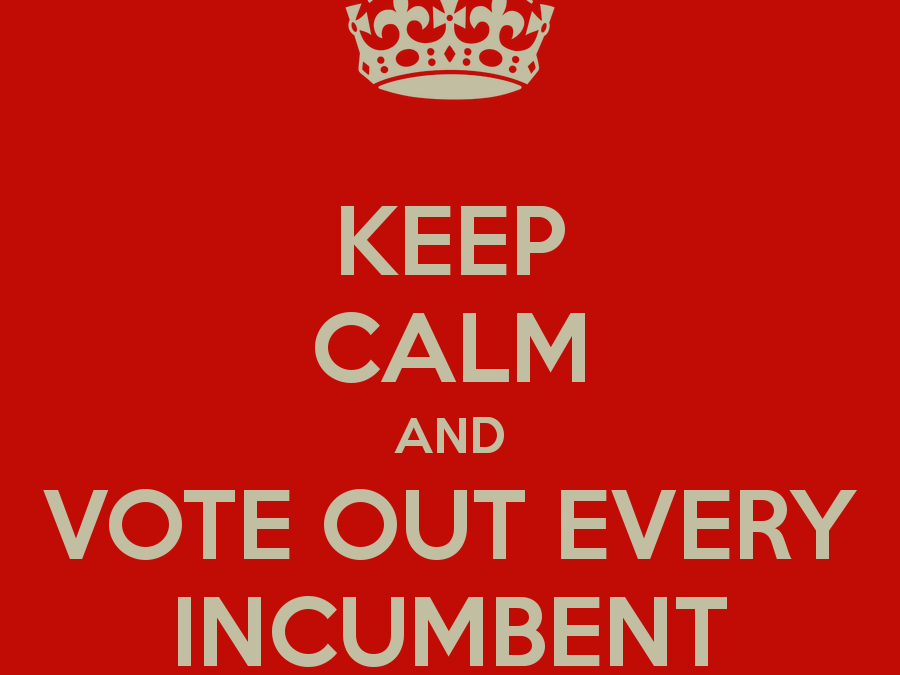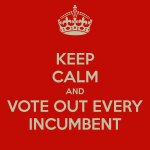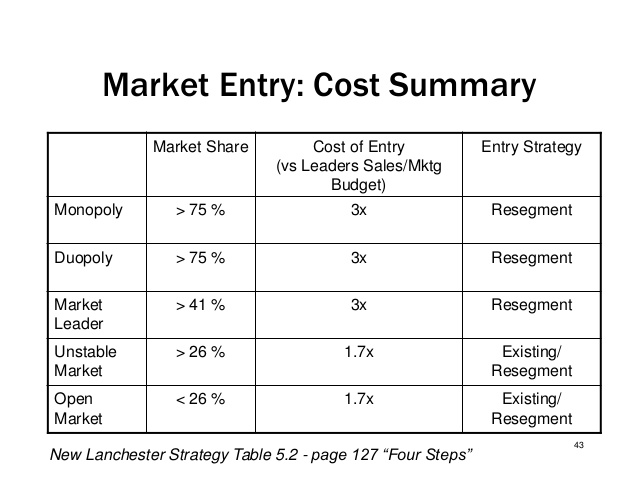
by Alex Patton | Apr 27, 2015 | Political Consulting

First time candidates make mistakes, and it is because we expect them that we can take steps to minimize them.
Over the past 20 plus years, I have observed first candidates making mistakes early in the process and during a campaign.
This quick guide is an attempt to help first time political candidates avoid the most common campaigning mistakes, and it may act as a refresher for more experienced candidates.
PRE-CAMPAIGN LAUNCH MISTAKES
Not Doing Correct Research Before Declaring / Deciding to Run before Evaluating the Terrain
This maybe the single biggest mistake a candidate can make. I rue the phone calls that begin with “I’ve filed my paper work and I am running. I’d like to discuss it with you.” Too Late.
It is better to call with “I’m considering running for office, and I would like to discuss the decision making process with you.”
In politics timing is everything, and sometimes this just isn’t the time to be successful.
Mistaking your Friends for Voters
Your friends lie – not in a mean spirited way, but in a non-malevolent way that is crushing. Your friends like you and most likely think you would be a wonderful public servant. Your friends also most likely look like you, live near you, and share political opinions similar to yours.
But most importantly, your friends are NOT likely to say something to you that will test or risk your friendship.
Thinking Beating an Incumbent will be easy
Yes, you and your friends think the incumbent has done an awful job. (But we’ve already talked about your friends.)
Incumbents enjoy significant advantages over challengers and are extremely difficult to up-end. The base rate of success in the Congress? Less than 10%.
Not polling
Running for office without polling is like driving a car blindfolded.
One wouldn’t be as stupid to drive blindfolded, why would one ever consider running without objective research?
Research is the way to test your friends’ and the campaign’s critical assumptions.
Cost too much? Nope. Not in with advancement in technology.
Want to know what really costs too much? Running a losing campaign because the message was off or campaign strategy was based on erroneous assumptions.
Saying “They’ll Never Find It” when it comes to past events.
It will always be found!
In fact, sometimes your former spouse, former business partner, or just someone who doesn’t like you will gift-wrap and hand-deliver it.
Your supporters can forgive most things, but cannot and will not forgive being surprised.
CAMPAIGN MONEY MISTAKES
Underestimating the Time Needed for Fundraising
Underestimating the difficulty in raising money may be the second biggest mistake.
Raising money for political campaigns is hard. It takes as twice as much effort and time as a candidate thinks it will – especially first time candidates.
Your good friend who said you would make a great public servant will suddenly stop returning your calls. Others will terribly disappoint you.
Rule of thumb for first time candidates: I take whatever figure a first-time candidate tells me they can raise, and I cut it in half and then cut it half again. The result is the actual working budget until proven incorrectly.
Messing up the Money
Don’t ever, ever mess up the money. Make sure the campaign keeps impeccable records and hits all filing deadlines.
- Pro-tip – photocopy each and every check before depositing.
- Second pro-tip – no cash even if the law allows it.
Candidate fills days with campaign work because she is avoiding FR
A candidate can find an infinite amount of things to work on, but normally a candidate starts doing these things because they are avoiding fundraising.
If you are a candidate, sadly your first priority is the role of head fundraiser in charge. You must provide the fuel for the campaign to run well.
If you find yourself digging holes for signs, writing television/radio commercials or attending government meetings you are most likely avoiding fundraising.
Yes, fundraising is hard and grunt-like, but all candidates volunteer for it.
DURING CAMPAIGN MISTAKES
Being Cheap About Photos
Good photos are essential to your campaign.
Most people are visual. They learn visually, they are persuaded visually.
Just because your cousin has a smartphone camera doesn’t mean you get good photos.
Don’t be miserly, hire a great photographer.
Valuing Expert Opinion as Much as Your Cousin’s
If you hire a political consultant, please don’t weigh their opinion equally with your neophyte cousin.
It is always desirable to seek advice and counsel from multiple people, but when push comes to shove weight the expert opinion more than cousin Eddy’s novice opinion.
Getting Bored with the Message
Once your campaign researches and develops the message, repeat it until people scream – then repeat it more.
One of the biggest challenges for first-time candidates is they get bored with the message thinking everyone has heard it before. The reality? Most people don’t tune into the campaign until the final week / days.
The trouble begins when the candidate decides to talk about something new. All consultants can recall picking up a newspaper story about the campaign (maybe the only time the hometown paper profiles a candidacy) to read pontifications from a candidate never discussed or researched that does NOTHING to advance the campaign’s message.
Don’t do it. Repeat the message, repeat it until you get complaints, then repeat it more.
Mistaking Politics for Popularity
If a political candidate is attempting to be everything to every voter, the candidate is going to have a bad time.
In a political campaign, a winner needs just one more voter than 50%. As a political candidate, you will NEVER have all voters love you, so stop trying.
Acting like it all about the candidate – It’s not.
Campaigns are about the voters, not you.
Resumes rarely win campaigns.
A candidate needs to suspend somewhat of what brought you to the dance – the ego. Candidates need to position smack dab in the middle of what the voters want.
Winning the Argument is NOT the same as winning the Election
Yes, you can be right, but please not to the detriment of the campaign. If you are trying to win every single argument, every single time, reconsider.
Conclusion
While this list is not comprehensive of every campaign mistake first-time candidates can make, this guide does represent some of the most common mistakes made.
If you take away nothing else, please remember – do research before filing paperwork and don’t underestimate the amount of time needed in the fundraising department.
PS. Before you go, you may want to check out some additional free information for first-time candidates: Additional Reading for First Time Candidates

by Alex Patton | Mar 17, 2015 | Political Consulting
I am not an alarmist, nor would I be considered a chicken little. In fact, I tend to think systems self-regulate and maintain an equilibrium.
However, for the first time, I am starting to ponder is America’s current two party system heading towards collapse?
Complexity
Over the weekend, I made the mistake of peering down the rabbit hole of the study of complexity and complex systems.
My over-simplified definition of a complex system? A complex systems is comprised of many, diverse actors who have interdependent relationships providing feedback that operate in an adapting, ever changing landscape.
This field is study’s grandfather could be considered Thomas Schelling. His nobel prize winning economic work is summarized in Micromotives and Macrobehavior. You are familiar with his work if you have read Malcolm Gladwell’s Tipping Point.
A basic point is micro level behavior and preferences can and often will differ from macro level results. These macro level results “emerge” from the microlevel actors, meaning no central actor is conducting.
I think we all can agree, the american political system could be described as a complex system.
The Collapse of Complex Systems
When we look at complex systems, they are remarkably tolerant systems, because as we defined them, they adapt….to a point.
However, our current political system is suffering fundamentally in two requirements for a healthy complex system:
Diversity in a Complex System
One of the requirements of a complex system is diversity. Not diversity of just the commonly discussed race and gender, but diversity of thought.
Diversity is a sign of the robustness of a system and its ability to adapt.
Making the concept simple: the more robust (diverse) a system, the more likely of optimizing a outcome.
When a system is reduced to homogeneous actors, the system loses robustness and heads towards catastrophic failure.
An example is a lake.
A lake is a large, complex, diverse and robust system. You put nitrogen run-off into a lake, a lake can adjust and adapt. No big deal.
You continue to add more nitrogen, a lake will continue to adjust, but its diversity is being reduced. It is still a healthy lake, but the complex system is undergoing stress.
You continue to add nitrogen to a lake, and at some critical point there is little to no diversity and BAM! you hit a tipping point and we are left with a slimy mess, a eutrophic lake.
Feedback in Complex Systems
Complex systems have cascading effects leading to tipping points. One of those cascading causing effects is when feedback loops tip too far to positive only or negative only.
With the lack of diversity in both parties and the curating of news, we observe epistemic closure skyrocketing in our political system.
Epistemic closure is not new, it was first talked about in the 1960s. More recently David Frum, former Bush speechwriter, was warning us about closed feedback loops in 2010 in his NYT piece, Post-Tea-Party Nation.
We observe feedback loops becoming less diverse, reinforced with epistemic closure, further affecting the feedback loop. It is a death spiral.
Observation of Current System
We would be hard-pressed to find a single thinking American that is satisfied with the current state of America’s political system.
Currently, the American political system is undergoing the Big Sort. Our politics are becoming more partisan and each party is undergoing it’s own purge of diversity of RINOs and DINOs.
The political system is less diverse thanks to gerrymandered districts and ideological purges. The feedback loops are closing (if not closed for some) thanks to epistemic closure.
Both factors are accelerating to magnitudes we have not observed due to catalysts such as technology (Internet) and money (super PACS).
This is observed in Gallup’s recent findings that NEITHER the Democratic Party nor the Republican party exceeds a 40% favorability rating. This is a historical finding: BOTH parties have NEVER been below 40% at the same time in Gallup’s poll.

Conclusion
Another observation of change in complex systems and its modeling is the speed at which massive change happens.
Let’s return to the lake example. A little disfunction is tolerated, but once cascades happen the change is inexorable, and change happens with a violent suddenness. Recent examples? the fall of the USSR and the US financial meltdown.
The USSR and the world financial markets were both systems similar to the lake. You could observe the signs of stress, but no one predicted the rate or size of change.
The current system of 2 party dominance is under tremendous stress.
- Congress’ approval rating is near an all-time low of 15%.
- BOTH parties favorabilities are at historic lows.
- Citizens have lost faith in government’s ability to do its basic job.
When I look at our country’s current two party system, I see signs of collapse and cascades.
There are questions remaining:
- Can we interject enough diversity back into the complex system to increase the likelihood of the system adapting? I see little to no evidence of that.
- Have we already passed the tipping point towards collapse?
- If we have not reached a tipping point towards collapse, will the system adapt and experience a realignment like we have seen in the past? V. O. Key, Jr. wrote about such realignments – Whigs, FDR, Nixon, Reagan, etc.
- If we have reached a tipping point, what would a collapse of the current political system look like? A third party and the death of one or both of the established parties? A radical redesign of the governmental system towards a multi-party governance?
I have always tended to believe that our 200 year old system of government is extremely robust and will adapt. I have previously thought we could and should expect a realignment.
However, with the acceleration of purges and closed feedback loops, I fear the system is now barreling towards collapse.
What I am becoming is more convinced daily that our complex system of governance will undergo a massive change in a relatively short period of time.
This massive change will take the form of a major realignment of the two major political parties or a collapse of our governing system. I hope it is the first.
As with the assassination of Archduke Franz Ferdinand Duke leading up to World War 1, in complex systems, a small spark can cause a massive, cascading change.
One possible spark? The electoral college advantage of the Democrats leading to the election of Hillary Clinton to the Presidency of the United States.
Additional Reading on Complexity
Santa Fe Institute

by Alex Patton | Mar 12, 2015 | Political Consulting
There is a difference between descriptive statistics and inferential statistics. There is also a difference between the following two questions:
- What are my chances of challenging an incumbent? and
- If I decide to challenge an incumbent, what do I need to do to be successful?
Today, we explore second question.
If I decide to challenge an incumbent, what do I need to do to be successful?
People are upset and anxious and with these feelings comes the desire to throw out every incumbent, but that seldom happens. Why?
We are not going to explore the substantial advantages incumbents enjoy. We are going to set them aside and attempt to answer the question, “what does a challenger need to do to be successful?”
Often in politics, we borrow from other disciplines and blend them together. In attempting to answer this question, I am going to borrow heavily from business to build out a new theory on challenging an incumbent.
The specific theory I am going to use is the New Lanchester Strategy. The strategy has its roots in Britain and then used by Japan business as a closely guarded trade secret. The New Lanchester Strategy is considered one of the best tools available for determining market type choices for both start-ups and existing businesses and is used to formulate marketing plans with strategies to attack market share.
The theory has military, business and political implications.
The New Lanchester Strategy asks “How do you win customers for a new, improved offer? You must understand how customers decide, and you must target at their decision process. It means that the offered products or services must become irresistible for the target market.”
I came across the New Lanchester Strategy when reading The Four Steps to the Epiphany, by Steven Gary Blank. Mr. Blank is a founder of the lean start-up movement and the book is considered a classic book in the start-up world.
Mr. Blank removes the math and states:
- If a single company has 74% of the market, the market has become an effective monopoly. For a startup, that’s an unassailable position for a head-on assault
- If the combined market share for the market leader and second-ranking company is greater than 74% and the first company is within 1.7 times the share of the second, it means the market is held by a duopoly. This is also an unassailable position for a startup to attack.
- If a company has 41% market share and at least 1.7 times the market share of the next largest company, it is considered the market leader. For a startup, this too is a very difficult market to enter. Markets with a clear market leader are, for a startup an opportunity for re-segmentation.
- If the biggest player in a market has at least a 26% market share, the market is unstable, with a strong possibility of abrupt shifts in the company rankings. Here there may be some entry opportunities for startups or new products from existing players.
- If the biggest player has less than 26% market share, it has no real impact in influencing the market. Startups who want to enter an existing market find these the easiest to penetrate.
Blank adds two more important rules in the strategy that are particularly relevant:
- If you decide to attack a market that has just one dominant player, you need to be prepared to spend three times (3x) the combined sales and marketing budget of that dominant player.
- In a market that has multiple participants, the cost of entry is lower, but you still need to spend 1.7 times (1.7x) the combined sales and marketing budget of the company you plan to attack.

Political Implications of the New Lanchester Strategy
If we consider an incumbent politician as having established market-share, and if we switch market-share for favorability polling numbers or even elections results, we can start to apply the New Lanchester Strategy to politics and develop a substitute hypothesis.
I think the best substitute is favorability ratings because it should be more current than past election results.
I am going to over-simplify for a starting point.
- If an incumbent has a favorability rating over over 74%, it is an unassailable position for a head on-assault; possible with a strategy of re-segmentation.
- If an incumbent has favorability ratings between 41%-74%, it is still an unassailable position for a for a head on assault; possible with a strategy of re-segmentation.
- It is not until the favorability rating is less than 41%, do we observe an easier path to entry.
Blanks’s stunning finding using the New Lanchester Strategy: regardless of the specific market-share or favorability ratings, if you are going to challenge an incumbent, you need to spend 1.7 x – 3 x the communication budget of the incumbent to take market-share.
Conclusion
As a company that has run many challenges to incumbents, some successful, most not; it is difficult to explain to excited candidates the difficulties facing challengers – not even specific to your candidacy – but rather any challenger.
When challenging an incumbent, almost every card in the deck is stacked against the challenger.
Now, consider a political neophyte with no market-share.
Candidates often cite such events like Rep David Blat’s defeat of an Eric Cantor as proof of concept, but interestingly they never consider the true Black Swan nature of such a defeat.
Combine that fallacy with prospective incumbent challengers basing their campaign budgets on what either the incumbent or a previous unsuccessful challenger spent, and we have a recipe for defeat.
We are now going to take this new theory and back test it against races to where incumbents or politicians with high market-share (in open races) were defeated by successful challengers. Any bets whether this new theory holds true?
Our first case study will be Representative Curt Clawson’s win in Florida.
Additional Reading
New Lanchester Theory for Requirement Prioritization, Dr. Thomas Fehmann (PDF)
Lanchester Laws Apllied to Sales Campaign Succes by Paul McNeil (PDF)
The Four Steps to the Epiphany, by Steven Gary Blank (Amazon link, non-affiliate)

by Alex Patton | Dec 9, 2013 | Political Consulting, Political Research

2013 Top Reading List for Political Consultants
During each odd number year, I set a goal to get better at my political science craft. Part of that goal is reading. Odd number year = take advantage of some down time = goal of 50 books related to political consulting. In 2013, I exceeded the goal by 5. #humblebrag
I believe the job of a political consultant is to study how people make decisions and then figure out how to affect the decision making process. This means our area for study is wide and vast.
In attempting to categorize the areas of concentration of my reading, I’ve come up with Behavior Decision Making, Cognitive Brain, Game Theory, Political Psychology, Advertising, Neuromarketing, Branding, Argumentation, and Philosophy.
I would say that this year’s main focus was on attempting to read more about how the brain works, makes decisions, and ways to potentially influence voters.
When people find out about my reading goal, I am often asked for recommendations.
Here you go:
Alex’s Fancy 2013 Top 10 12 Reading List for Political Consultants
(Note: The links provided are NOT affiliate links. They exist only for your convenience.)
12. Political Game Theory: An Introduction (Analytical Methods for Social Research), McCarty, Nola
Regardless of what the title says, this is not an introduction. There is math, lots of math, lots of advanced math. It is not for the faint of heart, and approximately 57% of the math went over my head. The part I did retain was fantastic.
11. Zen and the Art of Motorcycle Maintenance, Pirsig, Robert M.
Read this book on my digital sabbatical. It is a philosophy book, but a classic, welcome relief on a beach weekend.
10. Oxford Handbook of Political Psychology (Oxford Handbooks) Sears, David
A great anthology on political behavior, group relations, theoretical approaches, and change politics. I admit, I only skimmed the International Relations section.
9. The Persuadable Voter: Wedge Issues in Presidential Campaigns, D. Sunshine Hillygus &, Todd G Shields
The science behind wedge issues and cross-over voters.
8. Thinking, Fast and Slow, Kahneman
Additional Reading on the two major systems of the brain.
7. How Voters Decide: Information Processing in Election Campaigns (Cambridge Studies in Public Opinion and Political Psychology), Lau, Richard R.
Behavior Decision Making Theory. A very interesting methodology used by Lau to study how voters actually decide.
6. Follow the Leader?: How Voters Respond to Politicians’ Policies and Performance, Lentz, Gabriel
I loved, loved, loved this book. In fact, I wrote an entire blog piece about it. Essentially this book tells us that in agreement with cognitive studies that issues mean little in the voters decision making process. Again, a novel methodology to studying the issue.
5. The Gamble: Choice and Chance in the 2012 Presidential Election, Sides, John, Vavreck, Lynn
An absolute must read. This book takes a deep dive in Romney / Obama, separating the “political science truth” from the talk show pundits’ “truths”. If you are interested in the science of politics and what really happened in 2012, you should read this book.
4. Predictive Analytics: The Power to Predict Who Will Click, Buy, Lie, or Die, Siegel, Eric
If there was ever a book I read this year that made me read every single footnote, it was this one. This is fascinating stuff, but it also carries over into your clients’ request for “big data.”
3. The Thinker’s Toolkit: 14 Powerful Techniques for Problem Solving, Jones, Morgan D.
While this book contains practical methods to critical thinking, the major revelation in this book is that our minds are liars. This book started my year long journey into biases, cognitive research and humility. If you consider yourself a true political analyst, you must do some meta-thinking about your biases and adopt some methodologies to counter them. If the smartest analysts in the world implement methodologies to attempt to minimize bias, political consultants should also.
2. The Happiness Hypothesis: Finding Modern Truth in Ancient Wisdom,Haidt Jonathan
While this book is additional reading into the two major systems of the brain and how our brains fool us, the book’s other key insight is the importance of metaphors. It uses the perfect metaphor for the two system brain: the rider and the elephant. This one metaphor wrapped up all the research and reading of cognitive biases into one simple to understand package; thus stressing the need for metaphors. Eureka moment! It has the added bonus of adding to our understanding of human nature and the concept of happiness.
1. Affective Intelligence and Political Judgment, Marcus, George E.
This was the one book that allowed me to pull together “Alex Patton’s grand unified theory of political communication.” I had just completed reading the book and was ruminating on it while doing a 50 mile bike ride. Then came the Eureka moment, the proverbial lightning strike. I had to stop my bike and find my phone voice recorder as soon as possible. Yes, it was that dramatic. The book is dry and academic, but for me it was the most important book I read this year.
Re-reads
The Prince, Machiavelli, Niccolo
Classic and must be read at least once a year. It is a political consulting law.
Influence, Cialdini, Robert
Another classic, it should absolutely be required reading. Want to learn how to use social proof in politics? This is the start of your journey.
The Black Swan: Second Edition: The Impact of the Highly Improbable, Taleb, Nassim
This book significantly changed the way I think about and make sense of the world. It is a discussion of how highly improbable events have massive influence on our lives. Once you read this, you can no longer give ‘guarantees’ and you become aware of the fact that “you don’t know what you don’t know.”
Story: Style, Structure, Substance, and the Principles of Screenwriting, McKee, Robert
What does screenwriting have to do with politics? EVERYTHING. Political Consultants are story tellers, and there is no better book on the structure of stories and how to tell better ones. Looking how to construct a hero narrative? Look no further, read this.
The Nature and Origins of Mass Opinion, Zaller, John
Read this in college, and Zaller’s four axioms have stayed with me ever since. I normally re-read this every other off year for a refresher.
Final Words
Noting that political consulting has few professional credentials other than reputation, it is imperative that we take ownership of improving our craft. If you are still relying on decades of accumulated rules of thumb, I think you should make a change in your behavior.
Our minds are tricky little devils, and we owe it to our clients to get better.
Happy New year, and I hope the cycle is prosperous for you and your family.
All of these selections and more are included in the Ozean Political Library.

by Alex Patton | Dec 2, 2013 | Political Consulting

Analytical Thinking & Presentation for Intelligence Producers
Over the Thanksgiving weekend, during a Tofurkey induced political-nerd Internet session, I came across a copy of the CIA’s Training Manual & Handbook written for their analysts entitled: Analytic Thinking & Presentation for Intelligence Producers. Analysis Training Handbook.
The handbook was originally published in 2000, and I was enthralled with the document. After all, in a sense, political consultants are producers of Intelligence. It just happens to be political consultants trade in mostly open-source intelligence.
At first, I felt I was being respectfully subservient. I was going to go behind the door and learn the secrets to being a great CIA analyst.
However, as I read the document, it became apparent that what I had stumbled upon was the government’s version of Strunk & White.
It is a good read, but you will learn no secrets, only helpful hints such as:
- The importance of a title
- How to gist your reading (actually a very helpful section)
- The need for focus and clarity
- “If you can’t summarize your bottom line in one sentence, you haven’t done your analysis.”
- One idea – One Paragraph
- The inverted Pyramid writing style, i.e. begin with the core assumption.
- The importance of precise language (no jargon, no abbreviations, allow no possible misunderstandings)
Again, there is nothing earth shattering, but it is an interesting read.
Developing Analytical Objectivity
The part that I found most interesting is the section entitled “Developing Analytical Objectivity.”
In a world filled with talk radio and infotainment, it is an important point to raise awareness about.
We have talked extensively about the cognitive nature of our brains and some of the fallacies and tricks our brains play on us – especially in the political arena.
This warning given to some of our country’s brightest thinkers acts as a reminder that if the smartest person in the room must protect against biases, so must we.
While there are no state secrets in the document, we all can use a refresher on how to write and think more clearly. I strongly urge you take a quick read.
Read and enjoy for yourself.

Download the Study

by Alex Patton | Nov 20, 2013 | Political Consulting

Alex Patton: Guest Lecturer of the Year
It was my absolute pleasure to be a guest lecturer at the University of Florida’s graduate political science program.
I was extremely impressed with the engagement and intellect of the students.
My only concern is 90% of the students in the graduate program self identified as Democrats.
Come on fellow Republicans, don’t fear SPSS. We need you!
As you can from the photo above, I was aiming for Guest Lecturer of the Year!
Knowing my fellow Gators, I believe the probability of me winning has increased dramatically……just saying!













